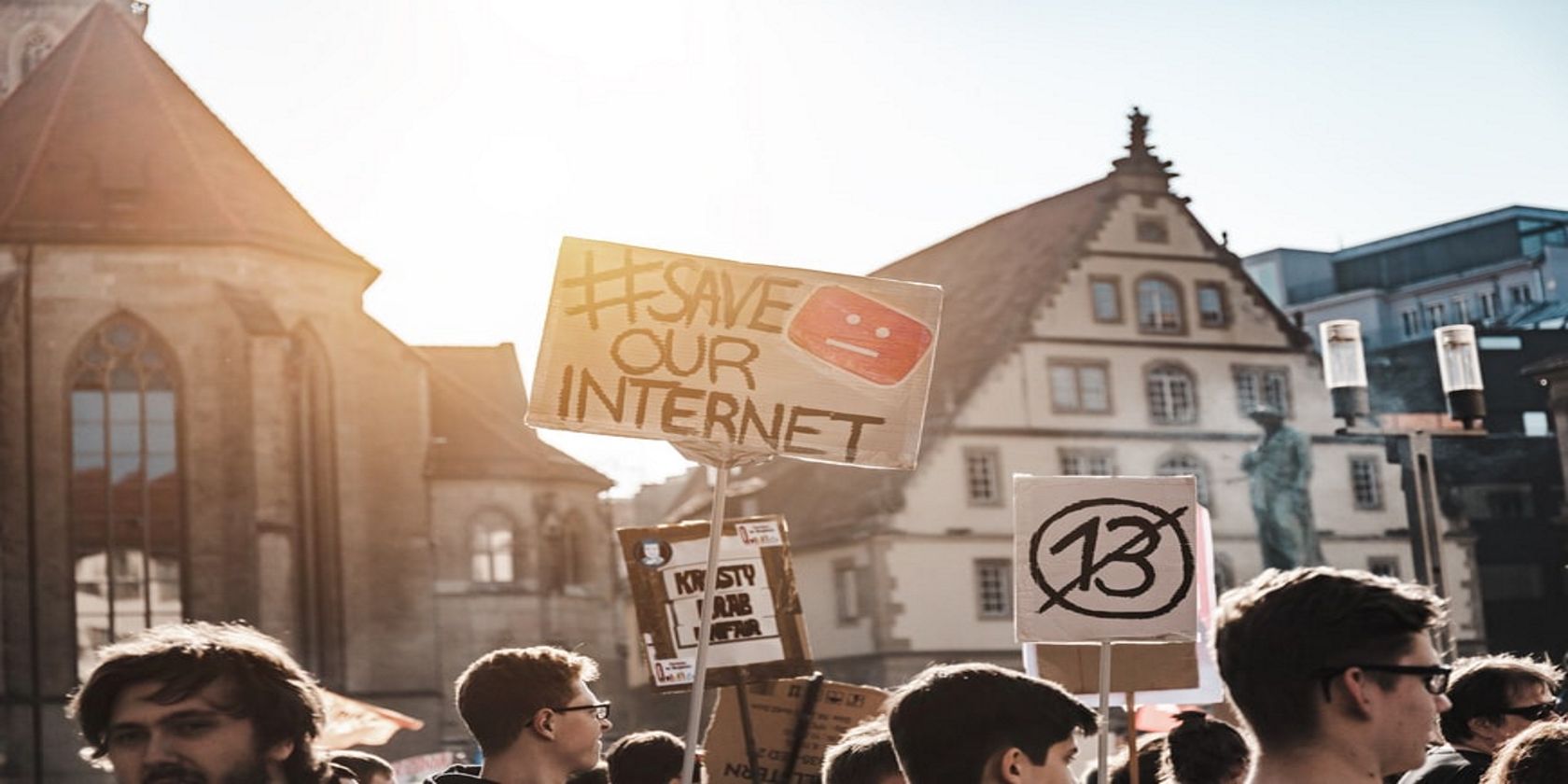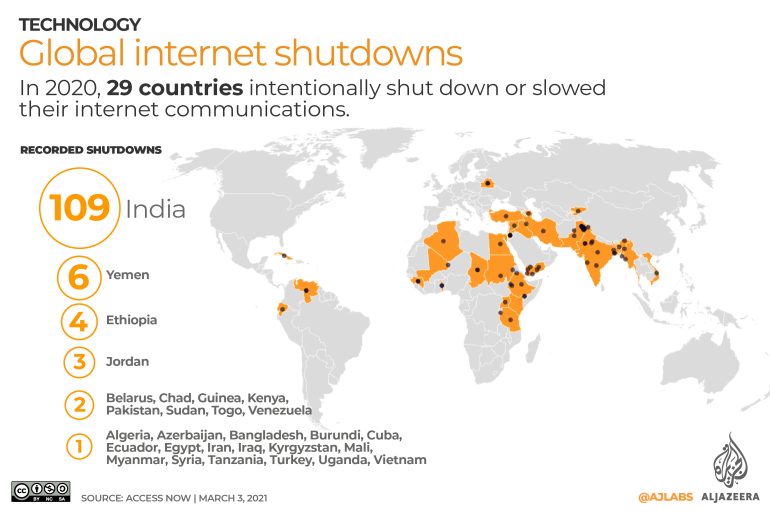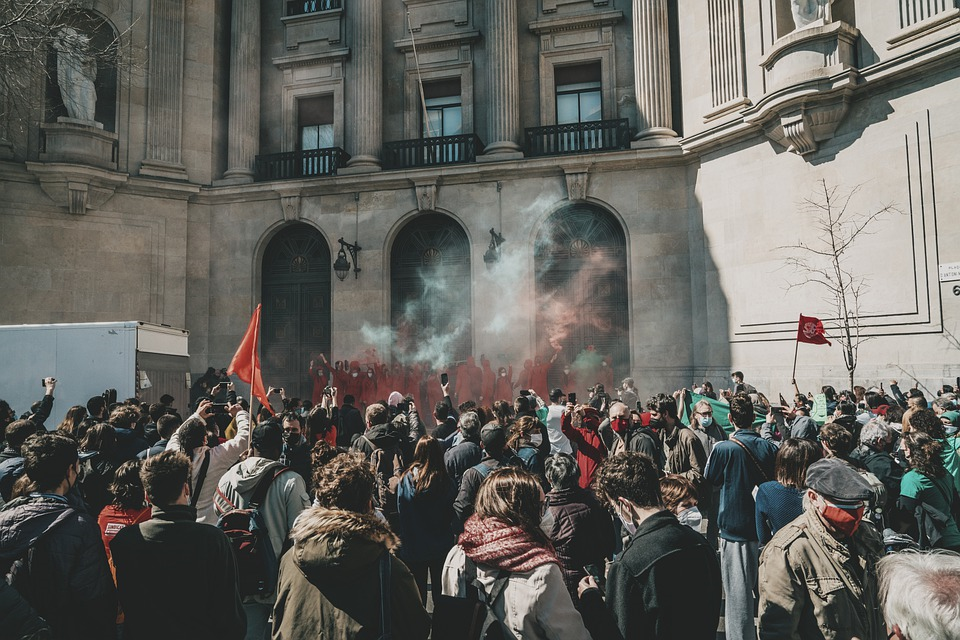Internet blackouts, banned websites, and ISP throttling. We're all too familiar with these terms. But do you know what really causes them?
You might've heard conspiracy theories regarding the internet and how it's controlled by the government or some "organizations" hell-bent on practicing mind control by cherry-picking the content we have access to.
Some of us are afraid of turning out like North Korea or China, but how is it possible? Let's start by understanding the basics.
What Is a Shutdown?
When it comes to the internet, a shutdown/blackout means disrupting the connectivity of an entire region. This can have major consequences for locals since all internet-related activity comes to a halt regardless of urgency or importance.
How does it happen? For starters, no one can turn the whole internet off. What happens is that internet service providers (ISPs) in an area are ordered to shut their services down, causing the blackout.
One of the many examples of such shutdowns is Tanzania's internet outages during elections in 2020. Another example is the frequent internet shutdowns in Indian-administered Kashmir.
If an authority wishes to remain inconspicuous, it can easily opt for throttling.
A Bit About Throttling
Throttling is a subtle way of limiting the communication speed of incoming and outgoing data to certain websites, platforms, content, or even the entire internet. This technique intentionally tampers with the data transfer, uploading and downloading speeds, and overall network quality.
That means the end-users will experience lag, slow internet, and low-quality UI when they try to access the targeted website, platform, or overall internet during particular times. Internet throttling is usually used to deter people from accessing certain content or platforms by making them less user-friendly.
It's hard to detect throttling because a lot of these issues can be caused or covered by genuine faults in infrastructure or low bandwidth.
The technique of throttling some sites while accelerating others can be used to shape user behavior. It's a way of herding a population into a desired mindset, activity, or plan of action.
While throttling may be stealthy, some prefer blocking instead.
How Far Can Blocking Go?
There are many ways of blocking access to online resources. A milder term often used for this kind of restriction is filtering.
- One way is Domain Name System blocking, where certain domain names are listed and blocked by ISPs or network administrators. When users go looking for them, no results show up.
- Another approach is IP blocking, where IP addresses of the hosts known to be disruptive are listed, and their requests are blocked.
- Apart from these, there is keyword filtering and packet filtering. Keyword filtering, as the name suggests, is when specific keywords are listed, and any content containing those keywords is blocked. Packet filtering controls access based on the IP addresses of both the source and destination.
Sometimes blocking, filtering, and throttling is achieved with the cooperation of major websites, search engines, or social media platforms commonly used among the targeted population.
There is another way of filtering content and restricting access to the internet, and it happens at the end-user level. Installing security software like parental controls on a child's device or administrative setup on employees' computers on the company premises can achieve the same goals.
That's all well and good, but why are authorities so tempted to restrict and control internet access?
Common Motives Behind Internet Restrictions
Let's discuss some of the mainstream reasons behind restrictions on the internet. The validity of these reasons is up to you to decide.
Elections
When it comes to elections, governments in Russia, India, and Zambia are known to have messed with internet access. They either restricted social media platforms like WhatsApp or shut down websites and pages containing content about certain politicians.
In the case of Russia, it was clear that they somehow deemed the content to be anti-government. Zambia's excuse was to prevent the exchange and spread of misinformation which could affect elections.
Protests
It's common for many governments to restrict internet access during protests to slow down and possibly stifle people's reactions towards government actions.
Limiting access to the internet limits the perpetuation and spread of the outrage in many ways.
However unethical, this approach was used by the Cuban government when protests broke out in Cuba in 2021 in response to the worst economic crisis in decades.
Exams
This may be one of the worst excuses to shut down the internet of entire regions, but unfortunately, it's a reality in many Middle Eastern and North African countries.
In Iraq, Jordan, Syria, Sudan, and Algeria, internet is regularly shut down during exam hours to prevent attempts of cheating.
Censorship & Taboos
Some governments are influenced by their traditional beliefs and values. When minds trained by these traditions meet the open, diverse, and fluid space that the internet is, they push back against that level of freedom in fear of being misled.
These religious, cultural, and national beliefs lead governments to censor content, ban websites, and restrict internet access.
Some recent examples of such cases are LGBT+ websites getting banned in countries like Russia, Indonesia, Iran, and UAE.
General Outrage
Some countries ban digital platforms over public outrage. Most of the time, it's more about content shared on those platforms than how the platform works or what it does.
There have been several instances when countries like China and Iran banned YouTube over content that didn't comply with their specific regulations.
More recently, several countries pulled beef with the Gen-Alpha-oriented social media platform TikTok over general public outrage and security concerns.
Public Policy
Some of the genuine reasons behind restricting access to certain websites fall under the category of Public Policy. Those are rules in place for public safety in real life as well as on the internet.
Common examples of such restrictions include bans on websites facilitating pedophiles, age limits to prevent minors from being exposed to adult content, and encouragement of parental controls to steer away from predators.
Network Security
Most of us have security measures and plug-ins in place to keep us safe from malware, viruses, and even spam. All of that counts as blocking since these extensions and systems block suspicious content, URLs, and ads.
If you're accessing the internet through a server shared and administered by an organization, it's likely they have taken many such measures.
Policy-Based Blocking
Policy-based blocking is when you access the internet through a network owned by someone who has blocked harmless websites to comply with certain policies.
An example could be a company blocking access to social media platforms like Facebook and Twitter. The policy-based blocks are usually in place to keep productivity high.
Is Internet Restriction Worth It?
From a technical standpoint, there's more harm than good in trying to restrict access to the internet from anywhere other than the user-end. Even then, you must be precise with your targeting when it comes to limiting access. The broader the restrictions get, the greater the damage is.
Not to mention it's considered a violation of UN Human Rights to restrict internet access of people.




